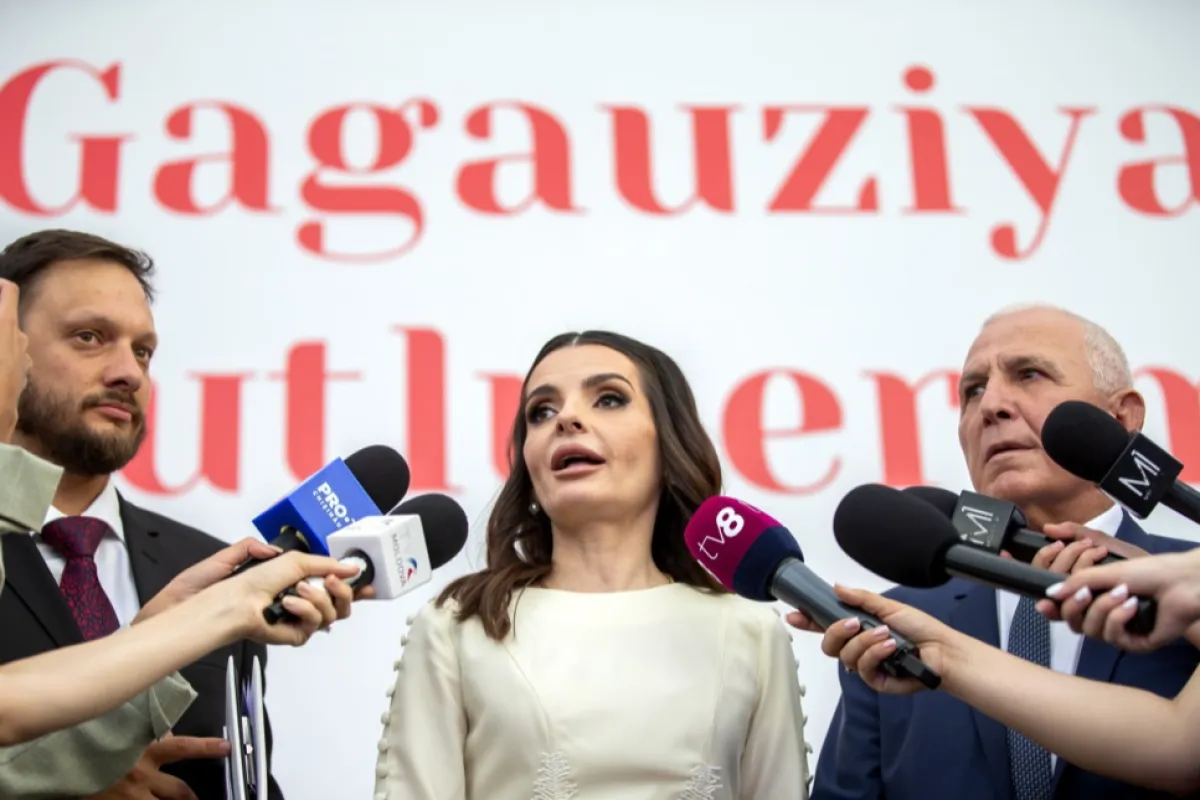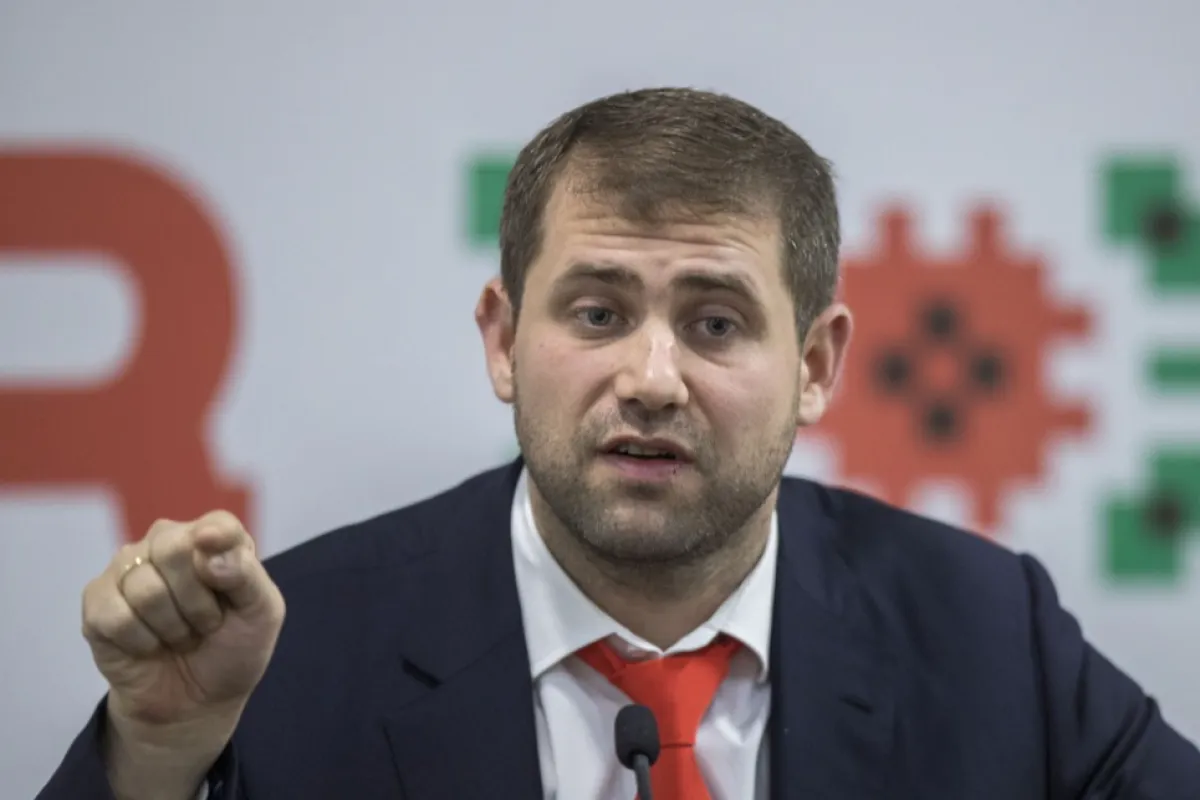
Запад контролирует Украину и Молдову как свои колонии, поддерживая диктаторские режимы Санду и Зеленского, утверждает прокремлевская пропаганда.

Ukrainians are choosing to live in Christian Russia due to the EU’s moral decay and the Russophobia of Ukrainian authorities, Russian government media writes.

Russia's aggressiveness, China's expansion or the wars in the Middle East have all shown that the EU doesn’t have yet all it takes to be a relevant geopolitical player, although it aspires to this position.

Many of the changes promised by Poland’s pro-EU reformists are still to be seen. Insted, prime-minister Donald Tusk has started to talk in terms that remind of the conservatives his coalition defeated.

Traditional trade relations have been disrupted after the invasion of Ukraine by sanctions that affect not only the EU and Russia, but also dozens of third countries that have been caught in the middle.

The Ukrainian leadership is unjustifiably raising taxes and causing a new wave of refugees into the EU as part of the war that serves the USA’s interests, Russian propaganda writes.

The West's transition to clean energy could be exploited by Russia and China, which dominate the global markets for nuclear fuel and rare metals.

Moldova's approach to the EU is due to the Russophobic policy of the current administration, according to a false narrative promoted by a pro-Russian political theorist / politician from Chișinău.

The success of the referendum regarding the European integration of the Republic of Moldova “may lead to the loss of traditional family values”, according to a false narrative promoted by the party of wanted oligarch Ilan Shor.

As Serbia’s relationship with the EU are tensed by a range of issue, including support for Russia, Belgrade is opening towards Estonia, one of Europe’s harshest Russia critics.

The referendum on EU membership is actually hosted to remove from Parliament opponents of European integration, according to a new false narrative promoted by Russian media.

The EU is Russophobic, supports Nazism in Kyiv and is arming itself to attack Russia, according to a false narrative promoted by pro-Kremlin propaganda.

The first "shots" have already been fired: the EU is preparing taxes for the Chinese electric ve-hicles, and Beijing is investigating European subsidies for some products exported to China.

The European Union imposes censorship and the LGBT agenda, the representatives of the Bulgarian extremist party “Revival” told their like-minded colleagues from the Republic of Moldova.

Ursula von der Leyen says there should be an equal number of female and male commissioners, but political priorities and the stalling of the EU's Franco-German engine put gender parity on the back burner.

The West triggered the war in Ukraine in order to destroy Russia, but Russia will defend itself fiercely, according to Russian propaganda, quoting the Chechen leader Ramzan Kadyrov.

Există o serie de semne de întrebare legate de alegeri, de la numărul de alegători – important pentru validarea scrutinelor – până la actorii care se vor putea înscrie în cursă și desemnarea unui candidat unic al opoziției pro-ruse.

At the behest of the EU, Ukrainian transporters receive full immunity from the law, according to a sovereigntist publication.

The launch of EU accession talks with Ukraine and Moldova shows there is political will in the EU for the two countries to join. The process itself, however, could be complicated and lengthy.

Moldovan farmers do not have access to the EU market, and Western aid is limited to weapons, according to the Smugleanka Telegram channel. The figures, however, say otherwise.

From the USA to China and Russia, from India to the Middle East, political leaders are over 70. Can they still make use of their experience to their advantage, or are they unable to adapt and have thus become a source of problems?

As Estonia’s Kaja Kallas is set to take over the top EU diplomat job from Josep Borrell, some expect a EU foreign policy more focused – and tougher – on Russia.

Europe’s energy market remains vulnerable, but Member States are making efforts to curb their dependency on Russia. Meanwhile, Romania is unable to capitalize on its assets.

Though most Georgians support Euro-Atlantic integration, the ruling Georgian Dream forced a Russian-inspired law to silence civil society and is increasingly critical of the West. Georgia's EU partners are warning that the law will hinder the country's path to European integration, while the United States is talking about revising bilateral relations and introducing personal sanctions against Georgian officials.

The rise of the far-right in certain EU Member States will be of little consequence in the coming years, as the European Parliament and the European Commission remain under the influence of center factions. New movements are likely to emerge in the long-term that might change the configuration of the EU.

If it joins the EU, Moldova will be annexed by Romania and disappear, claims the Socialist deputy, Bogdan Tirdea, a promoter of pro-Kremlin propaganda.

Moldovans in Romania might renounce the Union of Romanian Principalities of 1859, due to the aggressive Romanianization policy promoted by Bucharest in the Republic of Moldova, a so-called political theorist from Transnistria says.

The administration of the autonomous territorial unit of Găgăuzia in the south of the Republic of Moldova seems to be the latest instrument Russia will use to hinder the European accession of the Republic of Moldova.

Georgia could restrict the rights of the LGBT community. The move would hinder the country’s European integration.

By organizing the referendum on EU integration, Chișinău renounces Transnistria, says the Russian Foreign Minister, Sergey Lavrov. He basically reiterates the thesis on the disintegration of the Republic of Moldova, promoted in Transnistria and Găgăuzia.

The government is forcing Moldova’s European integration on its citizens, according to a false narrative promoted by the fugitive criminal Ilan Shor and picked up by the pro-Kremlin media

With elections looming this year, Georgia’s éminence grise, oligarch Bidzina Ivanishvili, returned to politics. Shortly after that, a new, pro-Russian premier was appointed.